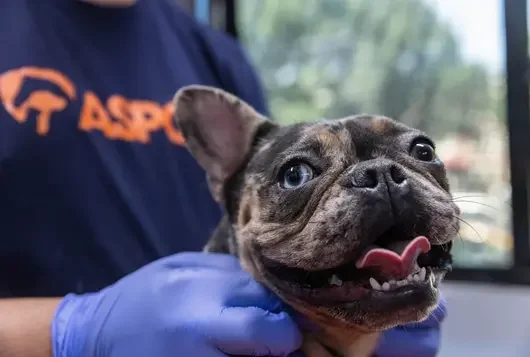Understanding the Many Dangers of Ibuprofen for Cats and Dogs

Ibuprofen is an over-the-counter pain reliever commonly found in households. Unfortunately for curious pets, ibuprofen can pose serious and sometimes life-threatening concerns.
Like many others in its class of non-steroidal anti-inflammatories (NSAIDs), ibuprofen is known to cause gastrointestinal upset, gastrointestinal ulceration and, in sufficient doses, acute renal injury.
Ibuprofen can cause neurologic signs such as depression, ataxia, coma and seizures. Transient hypotension and acidosis may be seen in severely affected patients. For dogs, neurologic signs may be seen at doses 400 mg/kg and higher; ferrets, however, are particularly prone to developing neurologic signs and may do so at much lower doses than dogs.
While many NSAIDs may pose risk for the liver, liver injury is not commonly noted with ibuprofen.
Treatment Options
When treating an ibuprofen intoxication there are several factors to take into consideration: breed, age, potential underlying health issues in the patient, how recent the exposure, the dose ingested and the current clinical status of the patient.
If the exposure was recent, the patient is stable with health status suitable for emesis, and the dose is one of potential concern, induction of emesis is typically recommended. Activated charcoal, potentially with a cathartic, may also be advisable following emesis using similar criteria as for emesis as well as considering risk for hypernatremia.
For cases where gastrointestinal ulceration is a concern, gastroprotectants such as an antacid (famotidine, omeprazole or pantropazole) and sucralfate should be administered for 7-10 days. Misoprostol may also be advised to limit the development of gastrointestinal ulceration
If the dose is high enough that there is concern for acute renal injury, monitoring renal values, urinalysis and proceeding with fluid diuresis is advised.
CNS Signs
Ibuprofen toxicosis patients showing CNS depression signs should have their blood pressure and acid base status monitored. Hypotensive patients may respond to an increase in fluids, but often pressors such as dopamine may be indicated. Acidosis should be corrected with sodium bicarbonate.
Patients showing significant CNS depression or seizures can be treated with naloxone. Seizures can be treated with a benzodiazepine, barbiturate, propofol or gas anesthesia.
Other therapies that may also be considered with ibuprofen intoxications include cholestyramine and lipid emulsion therapy.
With prompt and aggressive care, many patients exposed to ibuprofen can do well. Large ingestions should be taken seriously since ibuprofen ingestions can be fatal.
And remember that cats and ferrets are more sensitive than dogs, so much lower amounts can be much more serious for them.




